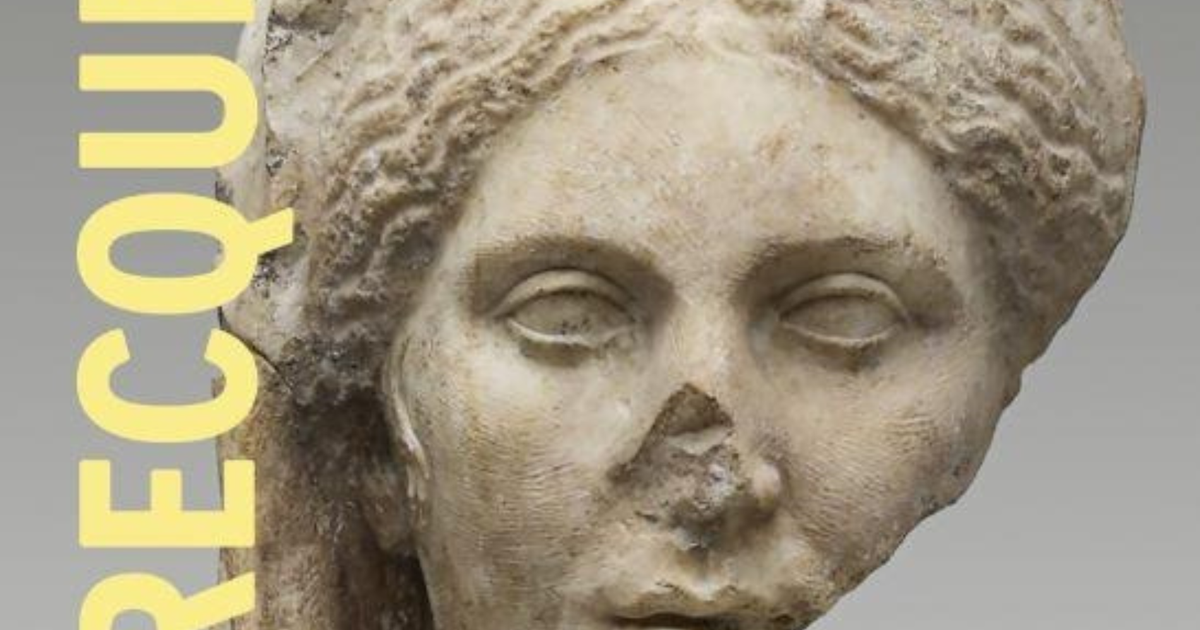Nothing or almost nothing prefigured the solid career that Ivy Pochoda has developed in the black genre with only four novels.
Neither her classical Greek studies at Harvard, nor her professional career in the world of squash (several times United States champion, hall of fame at her university for her performance with the racket), not even her first novel, The Art
of Disappearing
, for which she had envisioned other literary glories.
And yet, the American writer was one of the stars invited a few days ago to the Quais du Polar in Lyon, the best crime novel festival in Europe.
Pochoda (Brooklyn, 46 years old) is very clear about her path, what her literature can contribute to a genre that is gradually moving away from the dogmatic, reductionist and essentially masculine vision of women that has characterized her since the explosion of
hard boiled
of the 1930s in the United States.
“It is essential to approach women outside of violence, of brutality;
look at the human part, in life, passions, interests.
I think sometimes we focus too much on violence and forget about the person who suffers it.
And I think that women in crime novels are often just a corpse for statistics or the physical manifestation of something that a very cool criminal has done.
There are still too many stories, although it is true that it is changing, in which women limit themselves to their character as victims.
It's about understanding your life fully.
So my books are not so concerned with the violent act as with all of existence, the life that is around ”, she comments, always quick and accurate in her responses,
More information
Laura Lippman, the proudest member of the blackcriminal tribe
We could consider
Esas mujeres
(Siruela) as the compendium of all the creative magma of Pochoda.
There are the multiple voices that so characterize his work and that come from his classical education;
there you look at the abused or murdered woman and it is about knowing who she is, telling her story;
there the mother, also a victim, of a disappeared woman and her search for the truth are dignified and, in addition, everything happens in a small community.
This is how she explains how it all comes together: “In
Visitation Street
[second novel, published in Spain by Malpaso] and in
Those Women
there are people who have disappeared in small communities in which each one will have a perspective of what has happened.
The image that a policeman can have is not going to be that of a mother.
None is wrong, they are simply different.
In one way or another, almost all readers are going to find identification in some of those looks”.
Cities play an essential role in all this construction.
Pochoda assures that he has nothing to do with writing in his native Brooklyn, where he lived through the gentrification he talks about in
Visitation Street
, with doing it in Los Angeles, the city where he now lives and where his latest novels take place. .
“I always say that if you want your neighborhood to gentrify, all you have to do is write a novel set there,” she jokes about her fondness for choosing places that have begun to experience those changes.
She has never, she admits, stopped searching for that Brooklyn where she grew up, where her mother has lived for 44 years.
Among the multiple characters that populate the pages of
Those Women
, all with their speech and their strength, the figure of Essie stands out, a policewoman with a small body and an enormous mind, with high capacities and one goal in life: to resist.
“I wanted to put a woman in a man's world, a small woman who sees every day different manifestations of what it is to be a woman in a world like that without necessarily being raped or killed, but just exhausted with the daily sexism,” she explains. she.
Live next to the beast
"Denial, that's the key to this book," she comments without avoiding the most complex issue, that of the women who live with the monster and decide to look the other way.
“I wrote about this because it is a betrayal of justice and humanity that these gentlemen kill for so long because no one raises their voice.
I don't know, I think about it a lot and I don't understand it.
It's like Ted Bundy's girlfriend, who denounces him as the serial killer that everyone is looking for and the police say: 'Don't worry, it's not him.'
And I thought: how do you go back to dinner that day with him after that, after the system has turned its back on you?
Pochoda knows the world of crime in the United States well, but it is not the serial killer who interests him.
She looks and makes the reader look away.
The same goes for the police.
"Increasingly,
Especially with police violence in America, it's important not to glorify the police.
The police aren't bad, not all the time, but it's not the genre's job to fix police brutality, that's up to them;
we have to reflect it.
And that means talking about social problems as well.”
On that literary path that he treads with such confidence, Pochoda has linked crime novels with his classical training.
“I love choruses, I love when there are multiple voices leading the action, and I think that comes from the tons of classic dramas I've read.
There is a lot of violence and violence against women and by women and I think my new book [
Sing Her Down
, comes out in May in the US ] uses that kind of violence.
I think that, although there are people who still don't realize it, my books are organized like Greek dramas, ”she clarifies.
Squash imposed on the young Pochoda a discipline that she has not stopped using in the solitude of writing.
“There you are alone, you don't have anyone else, you have to train, improve, and if you have a bad day it's up to you: you have to continue despite everything.
You can't control that people buy your book, that it becomes a
best-seller
, but you can try to make it the best it can be.
Something similar happens with squash: I may not win a lot of money, but if I play a few good games, I will have done a good job, ”she concludes energetically.
Pochoda does not make series of novels but some of his characters jump from one book to another, discreetly at times, more evidently at others.
He belongs to the criminal tribe, with pride, and is recognized, for example, in Dennis Lehane's
Mystic River
, one of his godfathers.
He also receives the praise of other great figures of the genre such as Michael Connnelly or Laura Lippman.
"They're my friends, so they better be," he jokes before explaining how the group works, how they support each other and have fun.
They are writing a page in the history of the noir genre, although in the case of Pochoda it was not the initial idea.
Subscribe to continue reading
Read without limits
Keep reading
I'm already a subscriber



/cloudfront-eu-central-1.images.arcpublishing.com/prisa/ALIODPP46FDO7FZARDICIX4YS4.jpg)



/cloudfront-eu-central-1.images.arcpublishing.com/prisa/V22MUF36WRCMFMYVPT2JTWATUU.jpg)

